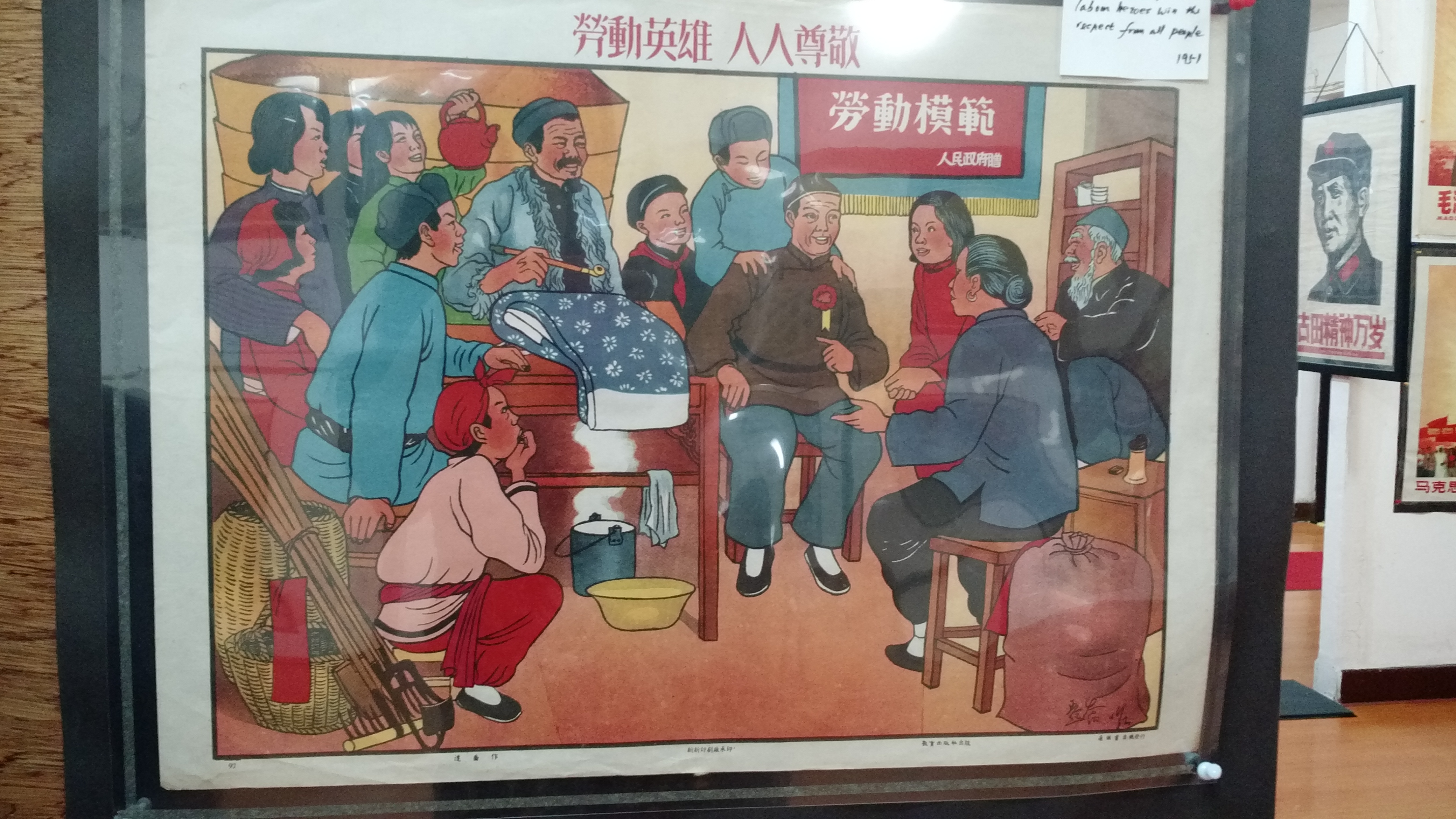
By Lucy Wang
[divider]
[dropcap]C[/dropcap]hinese art keeps its distance from daily life. People don’t feel safe these years, they don’t feel at peace.
Why aren’t their hearts at peace?
You cannot understand. You haven’t been in China [during this time].
…
[dropcap]I[/dropcap] came to China perhaps a bit arrogantly, thinking that because I had taken classes about Chinese society and about art, that I could overcome any and all barriers of understanding and experience China no differently than a native. But just as art and music express what words alone cannot, there are things which can only be understood through experience. I find myself hitting this roadblock after these weeks of research. People gladly share with me their thoughts and experiences until a certain point. But then when we hit the deeper issues, the why question, I realize that just because I’m conducting research does not mean I get unfettered access to peoples’ thoughts.
[dropcap]S[/dropcap]o my hope in writing this article is best summed up by the Quaker idea of “bearing witness,” of respecting the gravity of situations by giving sufficient thought to them especially when there may not be much else that I can do. This summer I have been grappling with my own identity, what it means to be Chinese American and what it means that I have the privilege to come to China, to be able to afford to live in the city with the highest cost-of-living, to spend my days interviewing people and going to museums, and then to go back to the US and synthesize my experience which ultimately will benefit me academically. This isn’t to say that Chinese artists and Chinese people don’t have agency to go abroad, to make a good living, or to think critically. Rather, I recognize that I have had immense privilege in growing up in the US and going to Yale. In fact, I’m more aware of this opportunity because I am ethnically Han Chinese and was once a Chinese citizen. When I look out on the streets of Shanghai and when I listen to people who say deep and difficult things, I cannot but help to think, that could have been me. Had my parents not immigrated to the U.S., rather than writing about some of the difficult economic and political situations in China, I could have been living them out. So instead of synthesizing my own thoughts on the Chinese contemporary art scene, I want to end by sharing a few more things said to me that have profoundly struck me.
…
[dropcap]C[/dropcap]hinese society is like an inflated balloon. The government allows the educated elite to jump over “the great firewall of China” and this is a pressure release. Otherwise they will leave. I would leave.
…
[dropcap]I[/dropcap]ntellectuals have been persecuted. The people with thoughts were not respected. But actually there are a lot of people with their own ideas, but because of censorship, you can’t really talk about certain things.
…
[dropcap]T[/dropcap]here is only one value in China: success, which is money and power. After turning thirty, I realized that money and power couldn’t solve my problems. Knowledge and creativity are also needed.
…
[dropcap]I[/dropcap]f you don’t think, then you will be happy here. It is easy to earn money. There are no bookstores around here, only hundreds of restaurants… My art is my religion. If you want to think, you have to have a religion to survive here in China.
…
[dropcap]E[/dropcap]verything that you take in, you keep inside of you.
Lucy Wang is a rising senior in Morse majoring in Ethics, Politics and Economics. Contact her at lucy.x.wang@yale.edu.